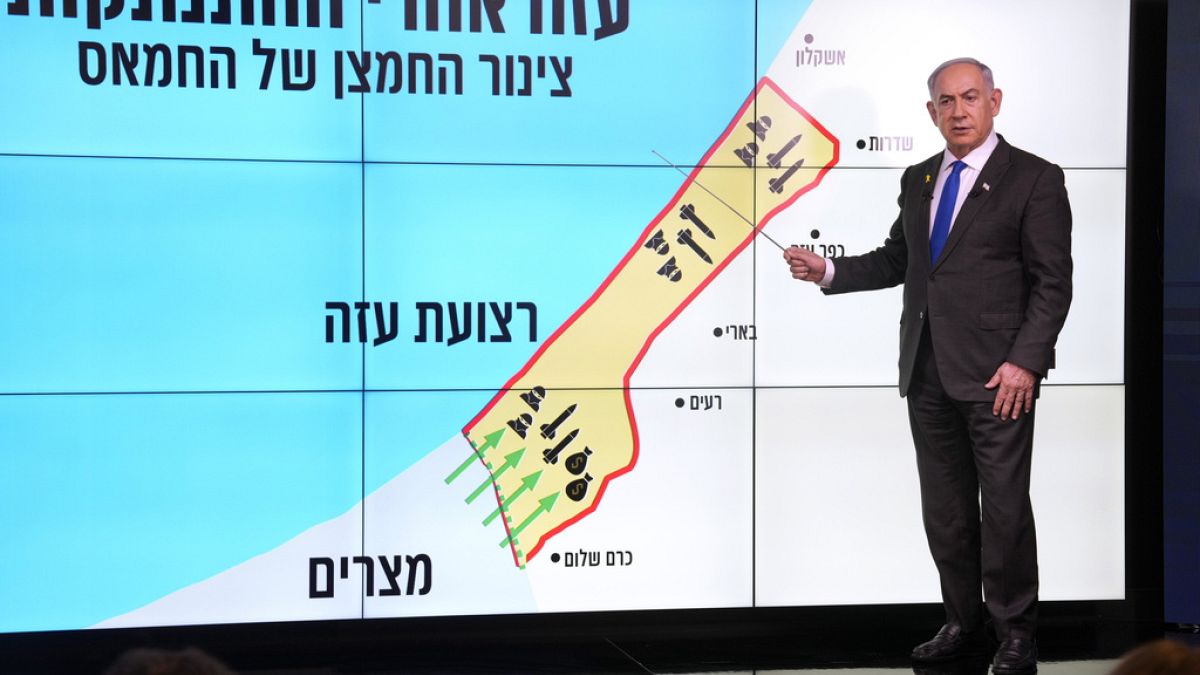Israeli Prime Minister Benjamin Netanyahu reaffirmed his commitment to maintaining an Israeli presence along the Philadelphi corridor, a strategic border between Gaza and Egypt, amidst recent ceasefire talks with Hamas. Netanyahu emphasized the importance of Israel’s control over the corridor to prevent Hamas from rearming through tunnels. He described the corridor as vital to Israel’s future and as the “oxygen and armament of Hamas”. Hamas has demanded the withdrawal of Israeli troops from Gaza, the release of Palestinian prisoners, and an end to the war in exchange for the release of hostages. These conditions were part of a ceasefire deal proposed by US President Joe Biden in July.
The urgency to reach a ceasefire deal increased after the discovery of six hostages’ bodies in an underground tunnel in Gaza. Israeli forensic experts confirmed that the hostages had been shot and died shortly before they were found. Amidst escalating tensions, thousands of Israelis protested in Tel Aviv, expressing grief and anger over the failure to secure a hostage deal and bring the hostages home alive. Many blame Netanyahu for the outcome and believe that the hostages could have been saved in a deal with Hamas. Despite facing criticism from US President Joe Biden for inadequately addressing the situation, Netanyahu remains resolute in his mission to defeat Hamas and ensure a complete ceasefire. He stated that the war will not end until Hamas is defeated militarily and politically.
Netanyahu’s stance on maintaining control over the Philadelphi corridor has become a point of contention in the ceasefire negotiations with Hamas. The Israeli Prime Minister insists that Israel’s presence in the corridor is crucial to prevent Hamas from rearming and posing a threat to Israeli security. Hamas, on the other hand, is calling for a complete withdrawal of Israeli forces from Gaza, along with the release of Palestinian prisoners and an end to the conflict. These conditions were part of a ceasefire deal proposed by US President Joe Biden in July, which has yet to be finalized due to disagreements between the two parties.
The recent discovery of the bodies of six hostages in Gaza has sparked outrage and protests in Israel, with thousands demanding accountability and action from the government. Netanyahu has expressed regret and sought forgiveness from the families of the hostages for not being able to secure their release. He remains hopeful that a ceasefire deal can be reached soon but maintains that the war will not end until Hamas is completely defeated. US President Joe Biden has criticized Netanyahu for not doing enough to bring an end to the conflict, adding pressure on the Israeli government to find a resolution.
The situation in Gaza remains tense as ceasefire negotiations continue between Israel and Hamas. The discovery of the hostages’ bodies has added to the urgency of reaching a deal to end the conflict and bring peace to the region. Netanyahu’s insistence on maintaining control over the Philadelphi corridor reflects Israel’s concerns about its security and the threat posed by Hamas. Despite facing criticism, he remains committed to defeating Hamas and achieving a lasting ceasefire. The protests in Israel highlight the public’s frustration with the government’s handling of the situation and the need for accountability in securing the release of hostages. As the tensions escalate, the international community is closely monitoring the situation and calling for a peaceful resolution to the conflict.
In conclusion, the ongoing conflict between Israel and Hamas, fueled by the discovery of hostages’ bodies in Gaza, has heightened tensions and prompted protests in Israel. Netanyahu’s commitment to maintaining control over the Philadelphi corridor as a strategic border is at the center of the ceasefire negotiations with Hamas. The pressure to reach a deal and end the war is growing, with US President Joe Biden adding to the calls for a resolution. The public outcry in Israel reflects the deep-seated emotions surrounding the hostage crisis and the need for accountability and justice. As the situation unfolds, the international community is urging both parties to find a peaceful solution and bring an end to the violence in Gaza.


























